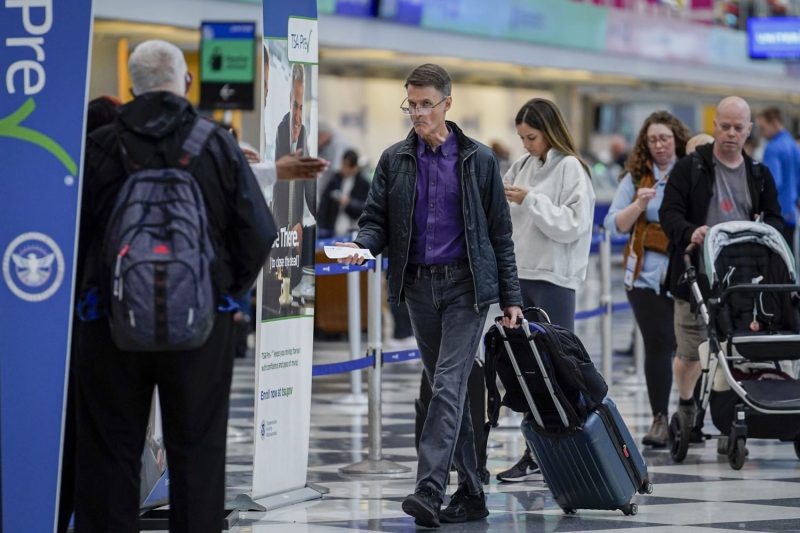In today’s fast-paced world, travelers are constantly seeking ways to make their journey more convenient. One recent development that is making waves in the travel industry is the Transportation Security Administration’s (TSA) PreCheck program, which allows eligible passengers to enjoy expedited security screening at airports across the United States. What sets this program apart is the fact that some airports now offer a new feature: travelers enrolled in TSA PreCheck no longer need to show physical IDs at security checkpoints.
This innovative change marks a significant shift in how airport security is conducted and has garnered mixed reactions from passengers and industry experts alike. By leveraging biometric technology, such as fingerprint scanning and facial recognition, participating airports can now verify a traveler’s identity without the need for traditional ID documents like driver’s licenses or passports. This streamlined process not only saves time for passengers but also enhances overall security measures by reducing the risk of fraudulent IDs being used.
For frequent flyers and business travelers who value efficiency and convenience, the elimination of physical ID checks is a game-changer. With just a quick biometric scan, they can breeze through security checkpoints without having to fumble for their IDs or boarding passes. This seamless experience not only minimizes stress and hassle but also contributes to a smoother and more enjoyable travel experience.
However, it is essential to consider the privacy and security implications of this new approach. While biometric technology offers undeniable benefits in terms of speed and accuracy, concerns have been raised regarding data protection and potential privacy breaches. Safeguarding sensitive biometric information is crucial to prevent unauthorized access and misuse, highlighting the need for robust security protocols and safeguards.
Moreover, the reliance on biometric data raises questions about consent and control over personal information. Travelers must be assured that their biometric data is stored securely, used only for its intended purpose, and not shared without their explicit permission. Clear communication and transparency from airport authorities and TSA regarding data handling practices are essential to maintain trust and confidence among passengers.
As this trend continues to gain traction and more airports adopt biometric identification systems, it is paramount for regulatory bodies and industry stakeholders to collaborate on establishing comprehensive guidelines and standards for data protection and privacy. Striking a balance between convenience and security is crucial to ensuring a seamless travel experience while upholding the highest standards of privacy and confidentiality.
In conclusion, the evolution of airport security through biometric technology represents a significant step forward in enhancing the traveler experience. The ability for TSA PreCheck travelers to bypass physical ID checks at select airports exemplifies the benefits of innovation and efficiency in the aviation industry. As this practice becomes more widespread, maintaining a focus on privacy, security, and informed consent will be paramount to building trust and ensuring a positive passenger experience in the digital age of travel.



























